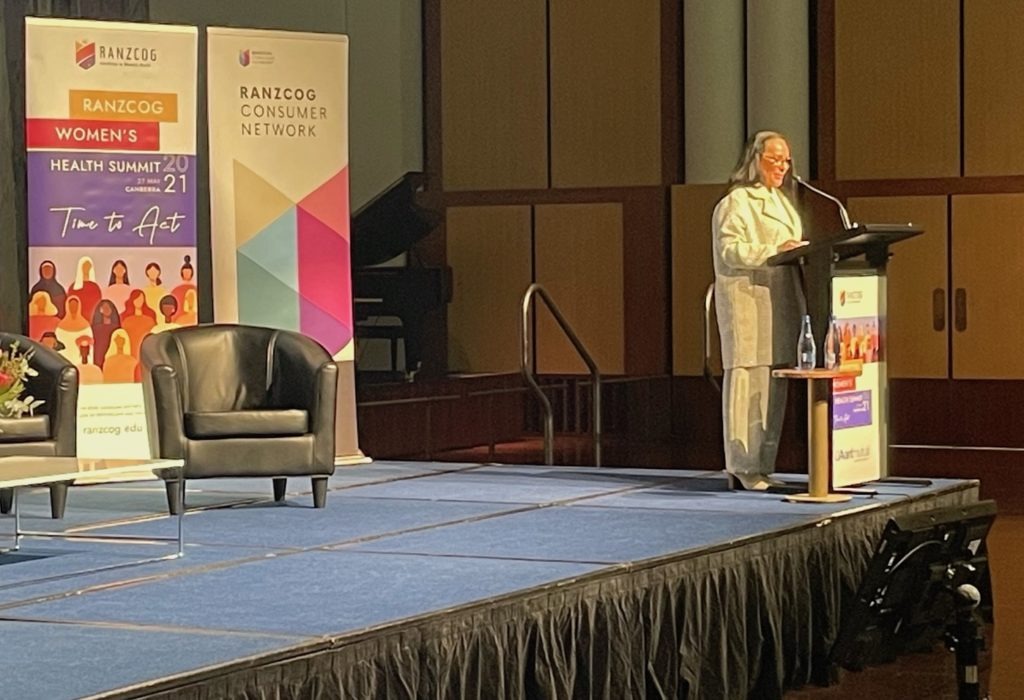If we’re going to improve the health outcomes for all women, we need to think broader than physical needs alone.
We must also consider women’s safety, the socio-empowerment of women, access to opportunities, a woman’s lived experiences, her caring responsibilities, her happiness and more.
And of course, we must consider the gaps that exist in women’s health across different segments of the population, especially for Indigenous women, migrant and refugee women and women with a disability.
We must consider how improving the health of all women, actually improves outcomes for everyone.
It’s this broad look at women’s health that is being discussed in Canberra today at the Women’s Health Summit organised by the Royal Australian and New Zealand College of Obstetricians and Gynaecologists (RANZSCOG) which Women’s Agenda is reporting on to highlight some of the key announcements and initiatives explored.
It’s a refreshing shift to take such a holistic look, especially in terms of bringing a wide range of advocates together to come up with small steps for creating real change, rather than creating yet more wide and unrealistic statements.
RANZCOG has brought together a diversity of leaders, experts and advocates to share different aspects of women’s health, with President Dr Vijay Roach delivering a call to action during his opening remarks for those gathered to consider women’s health as an opportunity for everyone. We need to work toward an approach that references a woman’s family, her culture, her lived experiences, her economic and social circumstances, and her environment, he told the audience.
Linda Burney MP delivered the Acknowledgement of Country this morning, and highlighted the need to ensure all women are included and considered. She said we must ensure equality of access to healthcare across diverse groups.
“We know that women with disabilities and First Nations women suffer dreadfully around issues of violence, issues of equity and issues of abuse,” she said. “We need to remember to give all women a voice.”
“It is crucial that these voices are heard.. When one part of our country is deprived, all of our country is deprived.”
Burney also spoke about cultural safety, and said that often First Nations women require a different cultural lens that must be understood and considered. She also noted that with women shouldering so much of the caring responsibility–particularly at present– their health can often go underserved. “And yet we must understand how improving the health outcomes for women, improves outcomes for all women,” she said.
This being National Reconciliation Week, Burney also highlighted the role of reconciliation in this conversation, and told the audience that: “The most powerful thing you can do in the reconciliation movement is the be as informed as you can be.” She spoke of the Uluru Statement as being “the most generous and inclusive invitation by First Nations people to come on the journey and walk with us.”
Dr Roach said women’s health, safety and happiness have been neglected. And that women must be heard – and will be heard today. He said the event would not “sanitise” the issues being discussed, rather it would confront what women in society are facing.
“The inclusion of women, the support of women, the empowerment of women – that won’t take away from anyone already in power,” he said. “We won’t be worse off if women are safe, if women aren’t abused, if women aren’t killed. It’s actually hard to find any kind of negative. Instead, we will grow, we will develop, we will learn and we will all be happier.”
He said that in ten years time, these groups will not come back to find that Indigenous women and their babies are still suffering at higher rates than non Indigensous babies and women. He said we ill not return to find that Menopause is still Taboo topic. That women’s pain is still going ignored and overlooked.
“We are not going to neglect women’s health,” he said. “It’s time to act.”
His words on the role of kindness were also powerful, and something to take into every conversation, particularly one that involves groups and individuals with different priorities and agendas.
“The single greatest gift that you can give another human being is to make them feel valued. If we make kindness the basis for all our conversations, we really can’t go wrong.”
We’ll be sharing more from the event on Women’s Agenda.


